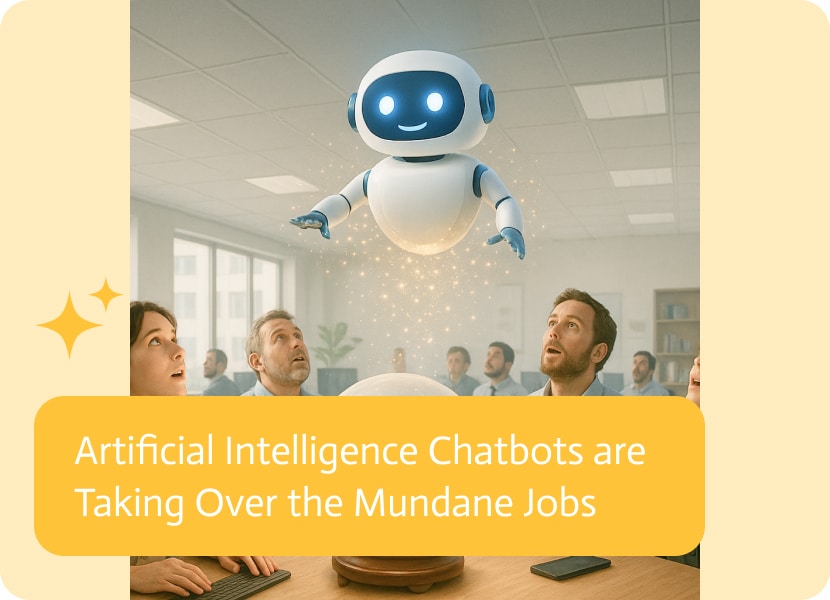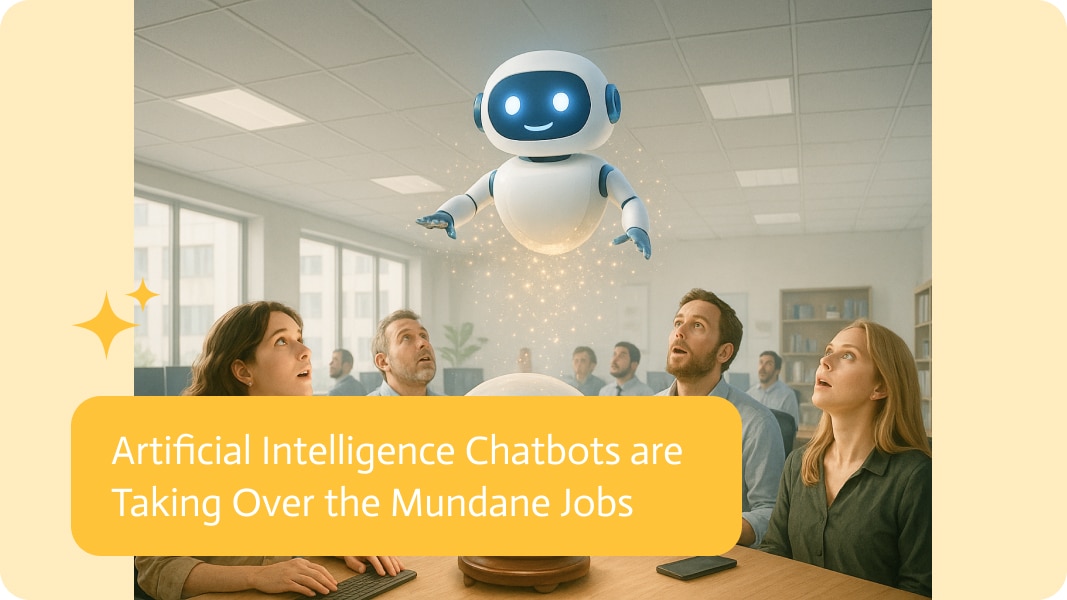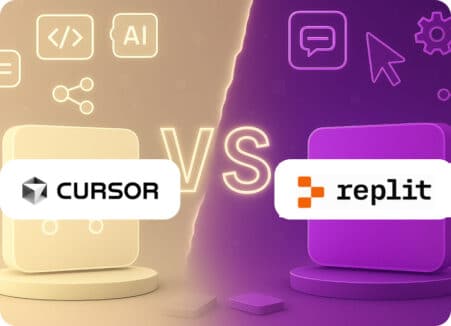

Artificial Intelligence Chatbots: The Take Over of Mundane Jobs
The tech community is enthusiastic about prompt to chat bot, especially since these programs used to be just a sci-fi dream, but they’ve now become an irreplaceable tool, changing how companies work and even what work itself means. We’re seeing a big change as smart programs perform all those boring jobs we never wanted to do in the first place.
From Humble Beginnings to Conversational Maestros
To really see how far they have come, we need to see their very first steps. Almost seventy years ago, renowned thinker, Alan Turing wondered whether machines were able to fool a person during a typed chat. His famous Turing Test, sketched in 1950, gave us a way to still talk about machine smarts today.
Back in the late 1990s and early 2000s, chatbots like A.L.I.C.E. and SmarterChild were showing up everywhere on instant-messaging screens. They worked from detailed sets of rules, which meant replies came from a fixed script. People enjoyed them because they slowly added new topics and learned a bit over time, even if their range was still pretty narrow. Moving from those clever-but-rigid toys to the chat buddies we use now, all easy and smart, came through huge jumps in AI.
NLP is what gives it the ability to not only comprehend, but write in any of our languages. It’s all about catching meaning, tone, and the little hints in chats here and there. Think of it as a computer trying to really get what you mean.
Then came machine learning, which changed everything for chatbots. Before, developers had to write rules for every possible question. Now, bots learn from real talks, the more they chat, the better they become at seeing patterns, improving answers, and learning new things, very similar to how we get better through practice.
The newest big thing is LLMs, these learn by going through enormous amounts of text from either websites, articles, and chats. This has made AI much better and smarter. These models guess the next word, like predictive text, so they can create human-sounding text, sum up difficult reports, make poems, or have deep talks.
The Great Unburdening: How Chatbots Tackle the Mundane
Dig a little deeper into chatbot tech, and you quickly see why they’re so good at the boring stuff. Repetitive jobs that need speed, as well as accuracy, and the same tone hour after hour are exactly where a bot outshines even the brightest human.
Remember the old customer service dance? A simple question steered you through a maze of menus, kept you on hold, or turned into a chain of emails stretching over days. Now, a chatbot steps in. Available day or night, it can zap back answers to FAQs, give order updates, process easy returns, or walk someone through a gadget fix in seconds. That job keeps a mountain of routine requests away from humans.
Bots are doing more than just helping customers. In sales and marketing, they’re like proactive helpers online. They chat with people visiting websites, figure out who’s really interested in buying something, suggest stuff based on what people have looked at before, and even give you a list of special offers, which undoubtedly encourage more purchases. This lets sales people concentrate on serious buyers and tough deals instead of wasting time on every window shopper.
Inside companies, chatbots are changing how workers get info and assistance. HR will often get swamped with questions about vacation time, benefits, or paychecks. A chatbot is able to answer these questions right away, giving HR staff time to work on more important things like training and keeping AI employees happy. Likewise, IT can use them to solve simple tech problems, walking people through solutions before a real person has to get their hands dirty.
Doing Away With Repetition: Augmenting Human Potential
Yes, automating the boring stuff is nice, but the best part of AI chatbots is how they boost our efficiency. Instead of trying to take over every job, these tools do the grunt work, which frees us up to do other things instead.
Picture a customer-service agent sitting next to an AI bot. While the agent chats, the bot pulls up the customer’s past orders, suggests help articles, and even summarizes previous calls in seconds. This lets the agent tackle tougher, more emotional questions that need empathy, creative thinking, and good judgment, things that the bots still can’t master.
The same story plays out in law offices or hospitals. There, chatbots can comb through thousands of pages, pull out key facts, outline case law or studies, and show only the juicy bits. By removing that slow data-chasing task, researchers have more time to think, connect the dots, and write insights that really matter. The bot isn’t taking their place; it simply turbo-charges every hour they spend on real, high-value work.
The Road Ahead: Challenges of The Future
The protection of personal information is top of the list, because many chats now touch on private subjects. Bias built into training material can sneak into the answers, which means teams are always watching to keep results fair.
Another sticky issue is that some large-language models may confidently share facts that aren’t true. That reminder keeps expert eyes on the conversation, helping spot errors before they spread.
Just about everyone is asking the same big question: Will these bots steal our jobs? History points to a mixed yet hopeful answer. Every major tech leap destroys some roles but also creates entirely new ones. AI follows that same path. Yes, repetitive work can get automated, but fresh opportunities arise for those who build, train, test, and monitor these systems. Companies now employ AI trainers, prompt engineers, ethics specialists, and even AI employees—autonomous digital workers that handle workflows—alongside human teams.
Noca AI’s chatbot does more than just talk to customers or generate content. It uses a vibe-coding approach so you can describe what you want in simple words and even deploy AI employees to perform tasks for your business. Whether you’re a startup or a large enterprise, leveraging Noca helps you stay competitive while balancing human oversight with automation.
Final Thoughts
AI chatbots are more than a cool gadget; they mark a big change in how we live and work. By taking control of the boring tasks, these smart helpers don’t steal our worth; they actually boost it. With repetitive chores off our plates, we have fresh room for creativity, clear thinking, and the tricky problems only humans can untangle. Work in the near future looks like a lively partnership where people and machines share their best skills, and build a faster, bolder, and more people-centered world. FYI….There is another type of AI agents, Learn more about AI Voice agent


